Our goods
export of hight quality breeding cattle, goat, sheep and animal compound feed
We offer the following:
Heifers
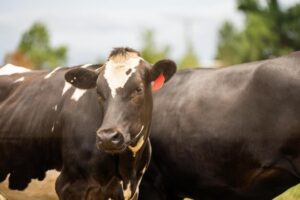
Argentine Holstein cattle, renowned for their superior quality milk production and adaptability, have established themselves as a top choice among dairy farmers worldwide. Originating from the Dutch Holstein-Friesian breed, Argentine Holstein cattle possess unique traits and advantages that showcase their dominance in the realm of dairy cattle farming, producing large volumes of high-quality milk with optimal levels of butterfat and protein. This makes Argentine Holstein cattle a preferred choice for dairy farmers seeking to maximize milk production efficiency and quality.
Additionally, Argentine Holstein cattle excel in terms of adaptability to different climates and weather conditions. These cattle are known for their resilience and hardiness, able to thrive in diverse environments without compromising their milk production levels. Their ability to adapt to varying weather patterns and environmental stressors makes them a valuable asset for dairy farmers operating in regions with fluctuating climates.
With proper nutrition and management practices, Argentine Holstein cows have the potential to produce a substantial amount of milk throughout the year. On average, a well-fed and properly cared for Argentine Holstein cow can produce upwards of 8 000–12 000 liters of milk per year.
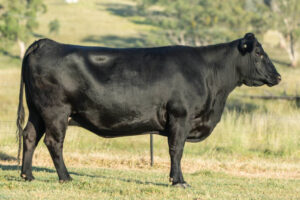
Originating from the Scottish Aberdeen Angus breed, Argentine Angus cattle is considered a highly profitable breed for breeding and known for their exceptional quality and resilience, are highly regarded in the world of livestock farming.. First and foremost, Argentine Angus cattle are prized for their superior meat quality. The meat of Argentine Angus cattle is known for its tenderness, juiciness, and rich flavor profile, making it a favorite marble top-quality beef and dairy products. They also have an excellent meat-to-bone ratio, increasing their commercial value.
Moreover, Angus cattle have a fast growth rate and good weight gain, allowing for quick production of finished meat for sale.
In comparison to Angus cattle from other countries, Argentinian Angus cattle have good adaptability to various climates and disease resistance, making them reliable and economically viable for breeding. . Argentine Angus cattle are known to be resilient and hardy, able to thrive in diverse climates without compromising their health or productivity. Their ability to withstand extreme temperatures and fluctuations in weather makes them an excellent choice for farmers in regions with unpredictable climates.
Additionally, Argentine Angus cattle are known for their efficient digestion and metabolism, allowing them to extract maximum nutrients from their feed and convert it into high-quality meat and milk.
Goats
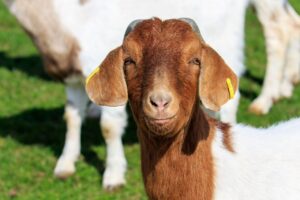
Buur goats are a breed of domestic goats that originated in South Africa. They are known for their distinctive appearance, with a compact, muscular body, long, pendulous ears, and a thick, shaggy coat that can be white, black, or brown in color.
Buur goats are valued for their hardiness, adaptability to a variety of climates, and high fertility rates. They are often raised for their meat, milk, and hides, and are popular among farmers for their low maintenance requirements and high productivity. Buur goats are known for their docile temperament and are easy to handle, making them a popular choice for both commercial and hobby farmers.
Sheeps
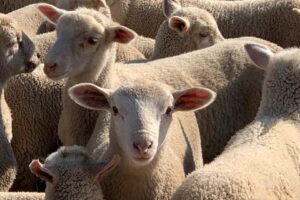
Dairy sheep breeds are known for their high milk production and quality, with rich and creamy milk that is often used for making cheese, yogurt, and other dairy products. They are typically well-adapted to grazing and can produce significant amounts of milk on a daily basis.
Meat sheep breeds, on the other hand, are bred for their meat production, with a focus on fast growth and high-quality carcasses. They are typically larger in size and have well-developed muscle mass, making them ideal for meat production. Meat sheep breeds are often raised in extensive grazing systems and can efficiently convert grass and forage into meat.
Overall, both dairy and meat sheep breeds play an important role in agriculture, providing valuable products for human consumption and contributing to the sustainability of livestock farming operations.
Compound feed
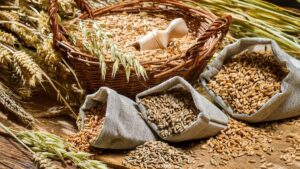
Our compound feed production facility is proud to offer high-quality feeds tailored for both dairy and meat breeds of sheep, goats, and cattle. We understand the distinct nutritional needs of these animals and have developed specialized recipes for each type.
For dairy breeds of sheep, goats, and cattle, our feeds are designed to enhance milk production and improve its quality. Rich in protein, vitamins, and minerals crucial for the animals’ health and productivity, our feeds contain ingredients such as soybean meal, canola meal, corn, wheat, and specific additives to promote digestion and overall well-being.
In the case of meat breeds of sheep, goats, and cattle, we have formulated feeds that contribute to superior meat quality, accelerated growth rates, and optimized feed efficiency. These feeds include protein-rich ingredients like soybean meal, meat and bone meal, animal fats, as well as carefully selected vitamins and minerals to support the animals’ growth and development.
At our facility, we meticulously monitor and control all stages of feed production to ensure the highest standards of quality and safety. Our feeds not only provide sufficient nutrition but also help to boost milk production and improve meat quality in the livestock, ultimately supporting their health and performance.
By choosing our specialized compound feeds, livestock owners can trust that their animals are receiving optimal nutrition to thrive and produce high-quality milk and meat.
- Holstein
- Limousin, From France
- Belgian Blue, From Belgium
- Aberdeen Angus Red From Argentina
- Aberdeen Angus Black From Argentina
- Montbeliard
- Holstein
- Charolais
- Limousin
- Belgian Blue, From Belgium
- Aberdeen Angus Red
- Aberdeen Angus Black

